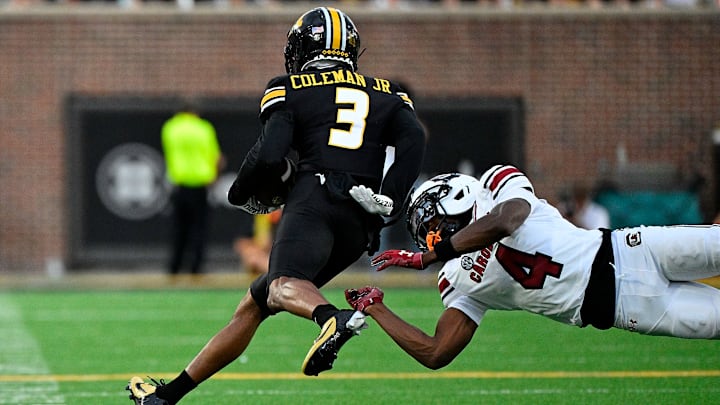South Carolina defensive back and special teams standout Vicari Swain was flagged for targeting Saturday night after what appeared to be a helmet-area hit on Missouri quarterback Beau Pribula, who was in the middle of a slide. The call was overturned on review, sparking disagreement from analysts and raising broader questions about how targeting and 'defenseless player' rules are being applied in SEC games.
What Went Down
In the matchup between South Carolina and Missouri, officials initially ruled that Swain had committed targeting by contacting Pribula's helmet while the QB was sliding. Under the SEC/NCAA rules, that would have meant ejection for Swain and disqualification for the first half of the next game for South Carolina.
After replay review, the targeting call was rescinded. As a result, Swain remained in the game and preserved eligibility for the first half of the following game vs. Kentucky.
What the Rules Say
The NCAA and SEC targeting rules prohibit "targeting and making forcible contact to the head or neck of a defenseless player." A player is considered "defenseless" in various circumstances, per Rule 2-27-14, Article 4. Examples include when someone is sliding feet-first after giving themselves up. Indicators of targeting must also be present for the foul, launching (leaving feet), lowering the head, leading with the crown of the helmet, etc.
What Analysts are Saying
ESPN rules expert Matt Austin disagreed with the overturn, arguing that Pribula was defenseless due to the slide and that player safety should have prevailed. Lead announcer Dave Pasch likewise expressed surprise, labeling the hit as "dangerous" given what was seen in the replay videos.
Stakes and Implications
Retaining Swain in the game was a major boost for South Carolina, given his recent importance as a defender, not to mention special teams weapon. For Missouri and for general safety policy, this places a spotlight on consistency. If sliding QBs can be hit in helmet-area contact without getting a targeting penalty, that may erode the protection intended by the rules themselves. The controversy adds pressure on both the officiating crews and the NCAA and SEC rules committees to refine and make clearer what "defenseless" means in these marginal plays.
Going Forward
The decision to overturn the call feels like an example of rules-interpretation. If the slide is going to make a player "not defenseless," then how that slide is executed maters. If the QB isn't fully protected, if he is exposed, if he gives up his ability to defend himself, all should be taken into consideration. The rules are there for a reason but need to be examined closer and defined clearer.
- The definitions of "slide" vs "giving up" vs "defenseless posture" need to be clearer. The boundaries are fuzzy.
- What video angles and criteria led to the overturn? Did the replay show that the hit was avoidable or helmet-first? Did Swain launch or lower his head? The review process needs more transparency.
- The rules need to be clear and consistent across conferences.
The Swai-Pribula incident is more than just that one play. It's an ongoing debate for the question: How do you balance the speed and physicality of college football with safety, especially for QBs who are sliding or giving themselves up?
South Carolina certainly got the benefit this time. Whether that is fair depends on your perspective of whether protection of a player health is given priority or is situational judgment allowed? And does it dilute safety rules?
